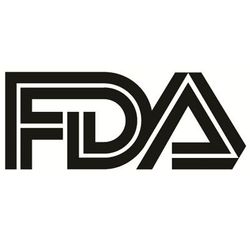
OR WAIT null SECS
Clinical Trials for Biosimilars Could Be Shortened, Study Finds
A new study indicates biosimilar trials remained consistent from 4-6 months through 12 months, which investigators suggest indicates these trials could be shortened without affecting safety and efficacy profiles.
A new systematic review revealed analytical and functional clinical trials provide enough evidence to show the safety and efficacy of biosimilars. According to results of the review, trial requirements for monoclonal antibody biosimilars can be lowered without reducing the quality of the research.1
“We analysed the [marketing authorization applications] reviews of biosimilar [monoclonal antibodies] and fusion proteins performed by the [European Medicine Agency’s Committee for Medicinal Products for Human Use] and found that in most cases (29/36 cases) good quality/CMC packages were matched with successful clinical trials leading to [marketing authorization],” wrote the investigators.
Biosimilars can treat complex conditions like cancer, but they can be expensive—and the high cost creates an unequal distribution of biosimilars across countries. Biologics make up 35% of the medicine in Europe at list prices and has been growing at an 11.3% compound annual growth rate over the past 5 years.2 Biosimilar competition, which is where there are multiple suppliers of the same substance, is crucial to decrease healthcare costs.1
Due to clinical development costs, products with low sales value are attractive to biosimilar manufacturers. Developing a biosimilar can cost anywhere from $100 – 300 million while developing small molecule costs $1 – 5 million dollars. The cost differences are attributed to trial lengths.
The study, led by Nadine Kirsch-Stefan and Elena Guillen, both from the Paul Ehrlich Institute in Langen, Germany, provided evidence to support a more flexible approach in data requirements for the approval of complex biosimilars. The investigators specifically examined the role of quality/chemistry, manufacturing and controls (CMC), and clinical data on the decision-making process for biosimilar marketing authorization.The team discovered that shortening trials, which makes everything more cost-effective, does not alter a study’s conclusion.
Requirements for biosimilar trials differ depending on the developing drug, but research typically include pharmacokinetic studies, efficacy and safety studies, and immunogenicity studies. The trials intend to deliver sufficient evidence to display that a biosimilar is highly like a reference product and has clinically meaningful differences in terms of safety and efficacy.
The investigators studied the conclusions made after data was submitted to regulatory agencies as a part of the marketing authorization application for a biosimilar product, along with 4-6 months safety and immunogenicity data, and the full dataset submitted 1 year later during the evaluation period. The investigators found that sending the data to the agencies in 4-6 months versus 12 months did not affect the study’s conclusion.
“In no instance have the conclusions reached after the initial data submission changed after completion of the study after 12 months, suggesting that such long trials are unnecessary,” the investigators wrote.
The investigators noted clinical trials often provide incomplete or insufficient data, and there may be differences in the safety and efficacy profiles or the biosimilar compared to the reference product.
“For three of the biosimilar candidates analysed, [pharmacokinetic] studies were deemed insufficient, which led to the conduct of a new, acceptable [pharmacokinetic] trial,” the investigators wrote. “The reasons for repeating the [pharmacokinetic] trials were due to methodological issues and differences in the formulation buffer or because of representativeness of the test product used.”
The study found that 22% of trials had no manufacturing or quality issues but raised concerns on clinical data. In instances where efficacy trials formally failed, biosimilarity was accepted by regulatory agencies due to analytical/functional comparability and the similar pharmacokinetic profiles. Overall, the study highlighted the importance of chemistry, manufacturing, and controls in the decision-making process for biosimilar marketing authorization, which suggests improving quality and completeness of clinical data can streamline the approval process for biosimilars.
“We conclude that a sufficiently robust analytical/functional similarity package, together with a [pharmacokinetics] trial capturing data on safety and immunogenicity would be sufficient for the purpose of regulatory decision making for biosimilar [monoclonal antibodies] and fusion proteins,” the investigators wrote. “In some case, if it were deemed necessary…a shorter efficacy trial ending at or near the timepoint of primary efficacy analysis could provide additional safety and immunogenicity information.”
References
- Kirsch-Stefan, N., Guillen, E., Ekman, N. et al. Do the Outcomes of Clinical Efficacy Trials Matter in Regulatory Decision-Making for Biosimilars?. BioDrugs 37, 855–871 (2023). https://doi.org/10.1007/s40259-023-00631-4
- IQVIA. White paper: the impact of biosimilar competition in Europe 2022. Dec 2022. https://www.iqvia.com/library/white-papers/the-impact-of-biosimilar-competition-in-europe-2022. Accessed 30 Apr 2023.


